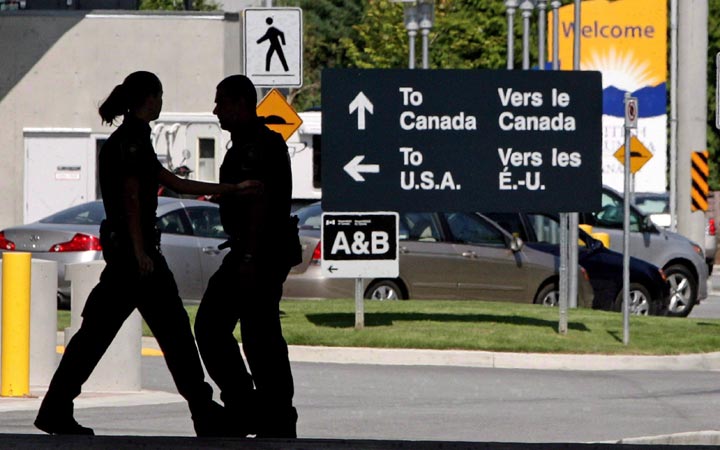OTTAWA – Public Safety Minister Ralph Goodale has rejected a call from MPs to spell out explicitly in law when and how border agents can search travellers’ smartphones and other electronic devices.

Under current policy, Canada Border Services Agency officers cannot routinely examine devices, and can only proceed in the event of a number of indicators that suggest a search would produce evidence of illegal activities.
Such signs could include a traveller’s behaviour, they way they answer a question, coding on a suitcase that doesn’t match the person’s itinerary, or the fact a ticket was purchased at the last minute.
In a December report, the House of Commons committee on information, privacy and ethics recommended that the border agency’s guidelines for examination of digital devices be written into the Customs Act.
The committee also recommended defining in law the threshold to trigger a search as “reasonable grounds to suspect” a crime or customs infraction.
Privacy and civil liberties advocates who testified during committee hearings noted the law had not kept pace with technological advances that allow people to carry electronic devices containing a wealth of personal information about their relationships, finances and health.

Get breaking National news
In a letter this week in response to the committee report, Goodale says the examination of electronic devices at the border should be conducted in a “cautious, progressive and methodical manner.”
However, writing further conditions into the Customs Act could hinder the border agency’s ability to respond to “emerging threats” and travellers carrying material such as child pornography or hate propaganda on their devices, Goodale’s letter says.
“Canadian courts to date have been supportive of screening goods at the border, including electronic devices, for valid legislated border purposes.”
Internal policy, training and oversight will continue to help ensure border officers respect travellers’ privacy, it notes.
WATCH: Focus Montreal: Illegal border crossings

The government agreed with the committee’s recommendation to collect statistics about searches of electronic devices at the border.
The border agency began tracking such traveller examinations at entry points last November, and is working on a “long-term, electronic solution” tentatively slated to be in place by summer, the letter says. A report on the data will be sent to the federal privacy commissioner every six months.
READ MORE: New rules let U.S. border agents access data on phones, laptops — but not on the cloud
The letter says U.S. counterparts have assured the Canadian government of their “ongoing commitment to protecting information shared by Canada.”
As a result, Ottawa will not ask Washington to add Canada to the list of designated countries under the U.S. Judicial Redress Act, a law that many argue would give Canadians the right to sue over an American breach involving their personal information.
In addition, Goodale says internal policy, training and oversight will continue to help ensure border officers respect travellers’ privacy.







Comments
Want to discuss? Please read our Commenting Policy first.